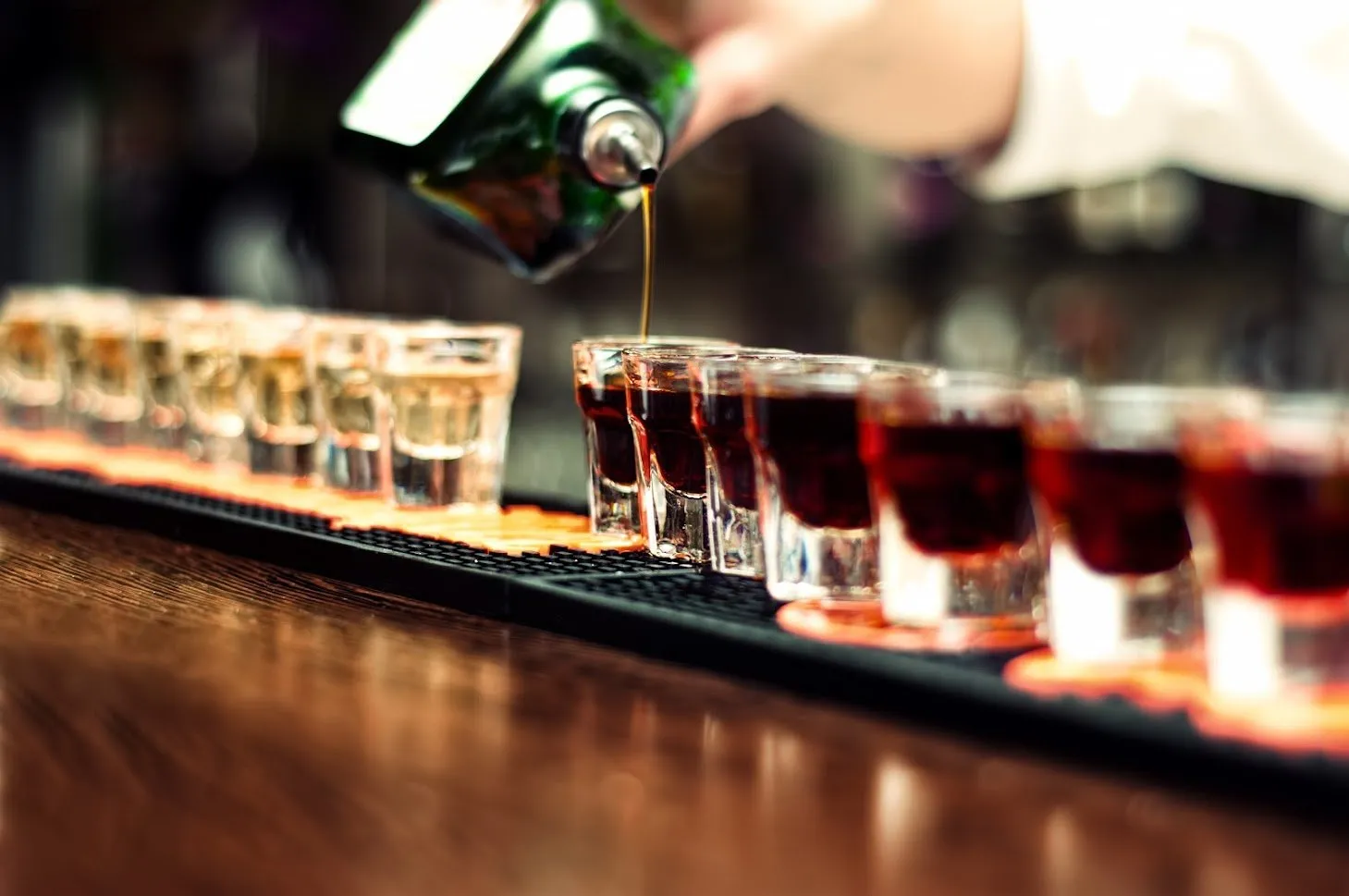Want a Bar at Your Wedding? 5 Questions to Answer
Do you want a bar at your wedding reception? For some couples, serving drinks at the wedding is just one more must-have part of the wedding day. For others, this is a big decision with many ramifications. To help you with all your alcohol choices at the wedding, discover five key questions to answer.
1. Cash Bar or Open Bar?
The first decision for most couples is whether or not to host the bar themselves. An open bar makes things easier for everyone, including both the guests and bar staff, and keeps service moving. This is also considered the more hospitable choice. Having to pay for their own drinks can annoy guests and leave them with a poor perception of your wedding.
Many wedding professionals recommend trying to have an open bar before considering other options. However, like many planning elements, you shouldn’t overstretch your budget to accommodate people’s potential perceptions. And keep in mind that paying for their own drinks may help limit guests’ consumption.
2. Full Bar or Limited Options?
How do you want to stock the bar? Limiting the choices may provide a good drinking experience for guests while not breaking your budget. You might opt for a bar stocked with a few wine and beer selections, for instance, and buy these in bulk.
Limited bars work best when you have a reasonable consensus on what your guests like to drink — if most people are beer drinkers, for example. In this case, buying a lot of cocktail ingredients could be wasted money. This is also a subtle way to reduce overall consumption. Rather than have guests loading up on Long Island Ice Teas, you can serve lower-alcohol wine and beers.
3. Open All Night or Limited Hours?
The decision of how long to operate the bar affects and is affected by several factors. First, if you host the bar, limiting hours is a good way to keep costs down if necessary. You might open the bar during cocktail hour only or close it before the end of the party when guests may be more inclined to drink. They drink less, and you can have that open bar for a while.
Controlling the hours when a bar is available also helps control alcohol consumption. Allowing people to enjoy a drink at the start of the party but closing the bar early helps prevent anyone from driving while inebriated. Similarly, you can lower overall drinking by shuttering the bar during dinner or limiting the types of alcohol served in the later hours.
4. To Tip or Not to Tip?
Should you tip your bartenders or should your guests? In general, if you host the bar, tip the bartending staff yourself. Having a cash bar? You can choose whether to let guests know that tips are unnecessary or you may make up the difference so that bar staff are tipped properly regardless of guests’ choices. Whichever route you take, though, ultimately good tipping should be your responsibility.
5. Big Bar or Small Bar?
Finally, how large should your bar actually be? Two main factors are at work here. First, how large is your guest list? A good rule of thumb is to expect to provide an average of one serving per guest per hour. After doing the math, determine if you need a larger (or second) bar and more bartenders to prevent lines from forming and frustrating guests.
However, bar size is also affected by how alcohol is served. An open bar often operates faster than a cash bar. And a bar with a limited menu needs less help than a full bar.
Want to know more about making these and other important decisions about your wedding reception’s bar? Start by meeting with the wedding professionals at Pristine Chapel. We’ll help you find the right balance between budget, choices, and safety. Call today to make an appointment.

